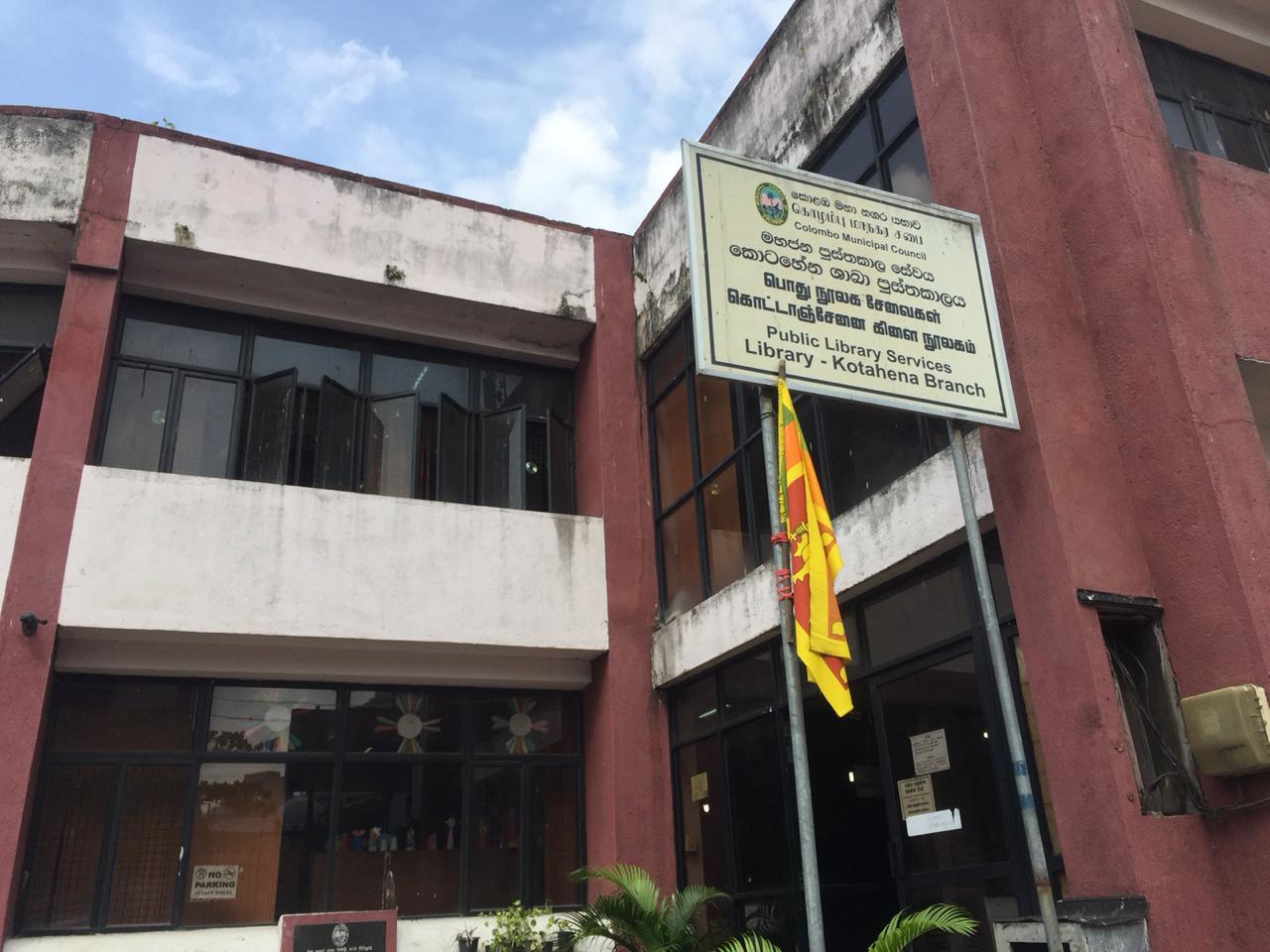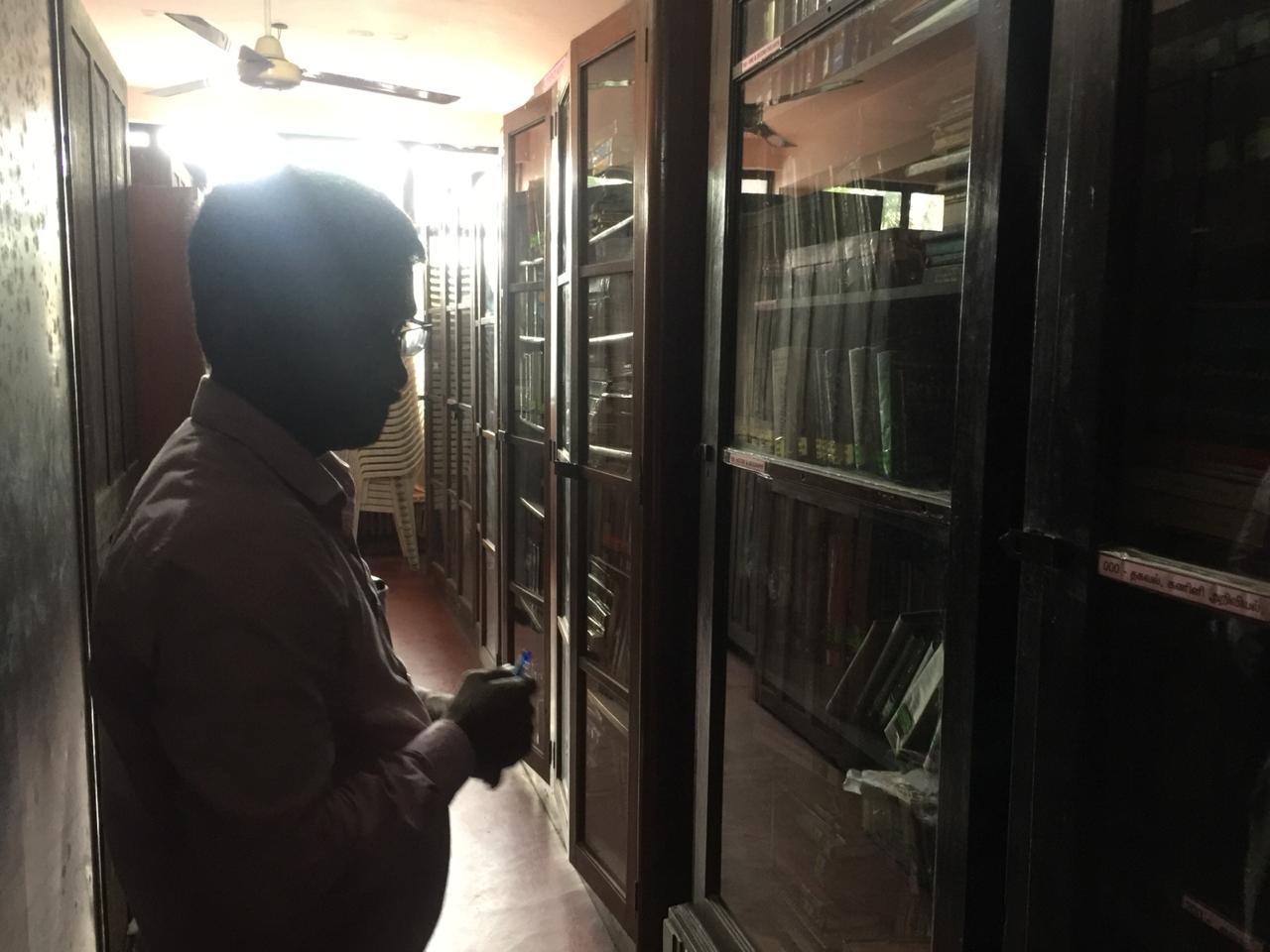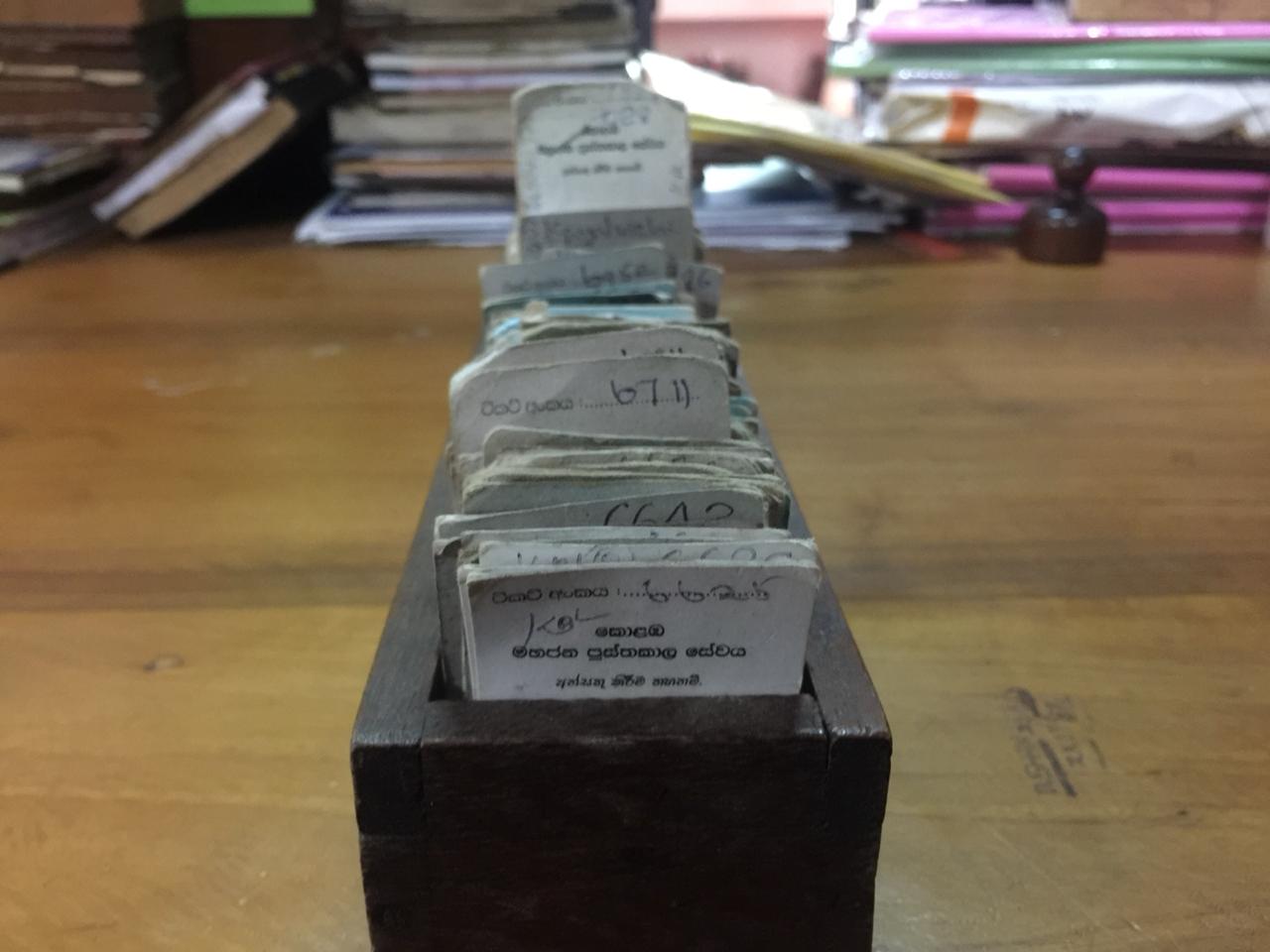
Down the road, around the corner with a petti kadei where people always flock for a tea and a wadei, is a rectangular building. Its two storeys—maroon and off-white—are unwashed and dirty. But once inside, you are in for a treat; there are rows and rows of books and publications—from translated novels to children’s books to reference literature. This is the Kotahena Public Library.

It’s ground floor is a lending library, housing hundreds of books while the first is a large study hall, where the public is allowed to study and read the newspapers. Library members can also browse the internet, making use of the single computer the library has for multimedia purposes.
It is one among the many public libraries in the Western Province that is run by a small group of individuals. Kotahena Public Library, acting as a branch of the larger Colombo Public Library, under the Colombo Municipal Council has three permanent employees—one chief librarian, one senior librarian and one library assistant. Three people are definitely not enough to run a library in the middle of a city.
This is not the only library suffering from a shortage of qualified employees, lack of funding and the misperceptions of governing bodies. Due to these matters, libraries around the country—save for few—are maintained manually in a digital age.
These are, in fact, a set of issues and challenges faced by public libraries around the country. The situation is overarchingly bleak at a glance. However, there are some survivors.
Survival Of The Fittest
According to the National Library and Document Services Board (NLDSB), Sri Lanka has approximately 1,500 public libraries. All public libraries are governed by the respective local governments, urban and municipal councils. Apart from the public libraries, the country also has specialised department libraries, private libraries and school libraries.
The country’s public libraries are small scale and are run on insufficient funds without proper resources. Except for a few, many of the libraries, the NLDSB noted are ‘floating’ with the only updates coming in the form of daily newspapers, gazette notifications and other government publications, whereas other documentation such as research papers, academic books and literature of all sorts go amiss.
There are of course several public libraries such as Colombo Public Library that have surpassed these obstacles and have managed to serve the community impressively..
Colombo Public Library’s Deputy Chief Librarian Chintha Ailapperuma told Roar Media that the funding from the governing authorities depend on the council’s perception and attitude on libraries. “The funding for most of the libraries depend on the attitude the chairman and higher ranking council members have of libraries. Funding is allocated annually, accordingly. There was a time when the situation was rather bleak; with libraries closing down due to lack of funding. However, the situation has turned around and there has been progress. People are showing interest in libraries again,” she noted.
It was only a few months ago that a proposal was submitted to the Sri Jayawardenepura Kotte Municipal Council to do away with the public library in the Rajagiriya. During the 2019 budget reading of the Kotte Municipal Council it was noted that the library was translocated from a prime commercial area to another, resulting in a drop in membership. Even though further funding was proposed during the budget for the upcoming year, concerns were raised against this, claiming that the money will be ‘ill-used’ on a library that ‘no one visits’.
Yet, the library services system in the country is optimistic. “There is a great development in public interest within the Western Province,” Ailapperuma said, “According to an ongoing survey we [Colombo Public Library and the NLSDB] are conducting, most libraries in the province are at a commendable position, meaning that they receive the necessary funding to stay active and are duly updated when it comes to publications, digitalisation and other systems.”

Senior Librarian Colvin Fernando noted that despite a number of available vacancies, the Kotahena Public Library is manned by the three employees on two shifts. “It’s hard work to do, but we are managing. We are trying to make do and develop what we have.”
The Colombo Public Library, together with its branches all around Colombo, has had around 110 vacancies since 2013 that have not been fulfilled. For this year, 49 more vacancies were announced. Recruitment has been temporarily halted due to the lack of qualified potential employees in the local job market.
According to the NLDSB, a qualified librarian is an individual who has completed his or her studies in library science. Such recruits can face further government exams to advance forward in a library career. However, individuals with even the basic qualifications are hard to come by and more often than not vacancies in smaller libraries are filled through political affiliations in smaller scale libraries. The best example is the Kotahena Public Library, which as mentioned before, is run by a group of three.
Digitisation Of Libraries
Libraries are rendered redundant in the digital age. However, digital transformation has not completely eradicated the concept of libraries but has upgraded it. Many of the libraries around the country, according to Ailapperuma have digitised their systems, abandoning the library card system which meant that the libraries dependent on a manual system of stacking, cataloguing and keeping track of documents and books.
The digitised system, obviously more efficient and work-friendly, depends on a barcode system. Each book has a specific barcode which is tracked using a library system software. And each library card has been transformed into an online profile maintained within this system. Some library systems track borrowed books, availability of academic papers and other documents, monthly subscribed magazines and other publications via open source software developed for the purpose. Libraries now provide internet services as well,not to mention free wifi to anyone who enters the building. In addition facilities include a digital library, where they maintain copies of most of the publications and documents available for perusal in the library.

According to Ailapperuma, not all libraries have gone digital. While the Colombo Public Library and a handful of libraries including the public libraries in Jaffna and Kandy provide these services, most other rural libraries are unable to go digital due to the lack of funding.
Even branch libraries as the one in Kotahena have trouble going digital. It is yet to introduce a digital library to its members and it was only in 2017 they successfully automated the library system. Their one computer that is allocated for public usage is of the old generation with an ethernet internet connection. “It’s barely used,” Fernando noted. “And the first floor of the building, where the multimedia section is placed, doesn’t have proper ventilation. So it gets really warm during noon.”
Yet the situation is not bleak as obtaining funds from their local governments. Institutions such as the Information and Communication Technology Agency and the Open University—which has developed Koha, the library database software, utilised by a majority of libraries across the island—are in the works of providing the necessary infrastructure that is essential for digitisation of libraries.
Unlike the Colombo Public Library which boasts a membership count of 175,000 since the inception of the library, with 25,000 active members, the Kotahena Public Library has only 2,500 members. The membership fee, for all public libraries, remain the same. Authorities are yet to realise that there is potential in attracting more members for disadvantaged libraries through at least miniscule change in the membership fee. The income can go towards the development of the library, eventually making all libraries self sustainable, instead of having to depend on their respective local governments.
“Almost all of these members are active with their membership,” Fernando commented. “They borrow books. Students refer to the library and study from morning till the library closes in the evening. Around 700 children’s accounts are maintained and they show up daily after school. We always try to have a monthly event to increase popularity and pique public interest.”
The Colombo Public library gets 20-30 new members daily. According to Ailapperuma, public interest in the library will never diminish any time soon. “Even though there’s insufficient funding, lack of proper employees and other issues, libraries will never cease to exist in the country. Individuals who have used a library, at least set foot into one, know the value of a library and the service it does.”







